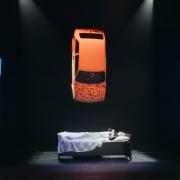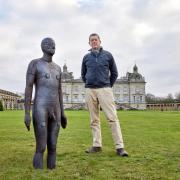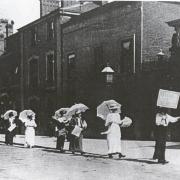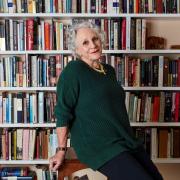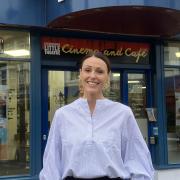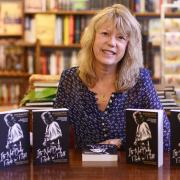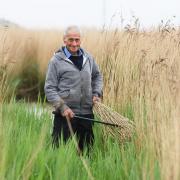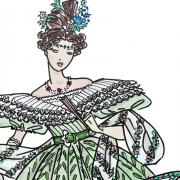Ion Trewin, his biographer, uncovers the Norfolk connection in the life of the bumptious MP, minister under Margaret Thatcher, self-confessed womaniser and compelling diarist.
Alan Clark’s love affair with Norfolk revealed
Ion Trewin, his biographer, uncovers the Norfolk connection in the life of the bumptious MP, minister under Margaret Thatcher, self-confessed womaniser and compelling diarist.
Norfolk had a special place in the memory of Alan Clark, although few knew it in his lifetime. Only now, 10 years since his death, have the pieces of the jigsaw come together. Today, Clark, a Tory MP who was politically incorrect before the phrase was invented, is remembered not so much for his time as a minister in Mrs Thatcher’s governments, nor for his unashamed and self-admitted philandering, but more for his frank, revealing and at times extraordinarily funny journals. As one newspaper put it: “Literature and the great British game of gossip will judge him for his diary. For its Pooterish self-assessment, for Mr Toad’s enthusiasm for new things, for Byron’s caddishness, for its deadly candour, it is one of the great works in the genre.” The public agrees. Half a million copies have now been sold since he first published his diary in 1993. A television adaptation with John Hurt as Clark and Jenny Agutter as his wife Jane gave BBC Four its first million-plus audience.
This diary, however, tells only a fraction of the story as I discovered when I began to research his life for the first biography. Although a Norfolk resident myself, I had no idea how much the county meant to him. But an old photograph album found at his home in Kent, the medieval Saltwood Castle overlooking the English Channel, set me delving further. In the album there’s a photograph of a toddler on a beach –unmistakeably Alan and probably in 1930 when he was 18 months old. It is captioned simply “Brancaster”. Other snaps show typical beach scenes in the mid-1930s with his twin siblings, four years his junior, and a holiday friend. That proved only the beginning.
His father Kenneth Clark was a rising art historian, who in 1934 became, at 31, the youngest director of London’s National Gallery, but it was not until the early 1960s that he achieved great and lasting fame with a television series, Civilisation.
Not that Alan as a child saw much of his parents. They were part of the beau monde of the 1930s, living in an elegant Regency house in London’s West End, close to the new headquarters of the BBC in Portland Place. If they weren’t entertaining at home they were out at the opera, the ballet or parties. The Clarks were much in demand. Alan felt neglected, being lucky if he saw his parents at tea time; otherwise he was mainly in the hands of servants, even in the summer holidays.The Clarks rented houses along the north Norfolk coast and despatched Alan and his twin siblings usually to be looked after by governesses and staff. However, in 1935, when Alan was seven, Kenneth Clark came too. He and his elder son discovered something they could enjoy together – walking.
In an undated note Alan remembers that on these walks his father would explain things to him, but the bonding failed to survive. “He hardly ever did that once I was at boarding school.”In 1938, aged 10 and by now at St Cyprian’s, a celebrated boarding school at Eastbourne that boasted George Orwell and Cecil Beaton among its alumni, he was sent by his parents for a week’s holiday in north Norfolk with a master from the school, Mr Cutforth (known as Cutty). Cutty supplied Alan with cigarette cards for his collection and by the account of one of Alan’s contemporaries, he was a brilliant teacher of reading.
He and Alan stayed at the Moorings Hotel, Burnham Overy Staithe, where Alan, in a pocket diary, recorded very high tides, messing about on Mud Island and fishing from a boat called Dorothy (all very Arthur Ransome). Dorothy was an elegant motor boat, which gained its name from the youngest daughter of Mary and Sydney Phillips, owners of the Moorings Hotel. Mud Island was man-made from mud generated by dredging the Overy Staithe creek.
Among the photographs in that Saltwood album is one that shows a row of beach huts. Might this be Hunstanton or Cromer? Another has what I take to be the Royal Norfolk Golf Club clubhouse in the background. Kenneth Clark played golf, but Alan was never hooked. At St Cyprian’s, however, he appeared to be a natural sportsman, reporting in one week three games of cricket, when he scored runs including a six, and took wickets. He was a less accomplished footballer – “rotten game lose by four goals”. Worse was to follow – “lose by 13 goals”, but for Alan there was redemption – “score first goal”.The war prevented further visits to Norfolk and by 1945 the Clark family was among the first European tourists after VE Day, visiting Switzerland and Portugal. But nearly half a century
later Alan briefly returned to north Norfolk. There is the briefest of mentions in his diary, but as I relate in my biography of Alan, he had recently ended an infatuation that had threatened his marriage. The woman in question had expected to help Alan fight the 1992 election, but at very short notice he resigned his parliamentary seat in Plymouth. Not wishing to be denied the opportunity of electioneering she left for King’s Lynn to help the sitting MP, Henry Bellingham. And for one day returned to Norfolk to canvass and knocked on doors in Hunstanton.
Alan Clark: the Biography, by Ion Trewin, is published by Weidenfeld and Nicolson priced �25. Ion Trewin is at Burnham Market for a Fiona Fraser literary event on September 25 and 26. For details, email fmfraser@bmkt.freeserve.co.uk or telephone 01328 738243. He will be speaking at Holt Bookshop on October 30 – see www.holtbookshoponline.co.ukReaders of EDP Norfolk may order copies of Alan Clark: the Biography for the special price of �22 (RRP �25) by calling 01903 828503 and quoting reference number RI011. UK postage and packing free, overseas add �1.60.





